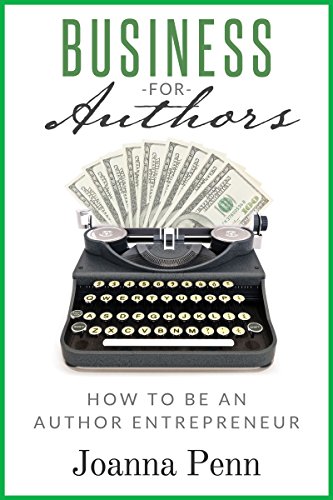The One Question Every Author Should Ask
We all want our novels to be successful.
Not only does success mean all our hard work has paid off, but it gives us a sense of tremendous pride. Success is the final reward after the long journey of writing, editing, and publishing our novels, and it’s a reward almost everyone seeks.
However, what this reward looks like isn’t the same for every author. Even if you’ve achieved what others would view as success, it may not carry the same weight for you. After all, success comes in many forms—and finding your personal vision of success is a critical step along your writing journey.
The Quest to Achieve Success
Contents
 Last week I published an article all about what I consider to be the twelve steps of writing a good novel. However, there was one part of the writing process I didn’t cover—post-launch. After you’ve published your novel, what comes next?
Last week I published an article all about what I consider to be the twelve steps of writing a good novel. However, there was one part of the writing process I didn’t cover—post-launch. After you’ve published your novel, what comes next?
Well, realistically, most of us determine our writing future based on how successful our first novel is.
Whether or not this is a good thing may be up for debate, but that doesn’t change the simple reality that success matters. We want our creative endeavors to feel rewarding, and we’ll shape our writing lives around that desire.
Because of this, success impacts our writing in many ways. It:
- Shapes how you judge your novel
- Influences how you set goals (and what goals you set)
- Encourages you to pursue new opportunities, while ignoring others
- And impacts whether you continue writing at all
Most importantly, success determines how happy you are as a writer. If you feel like your hard work is paying off, you’ll be more excited about your future as an author in general. Of course, with how important your novel’s success is, it would help to understand what success looks like. You need to know what you’re working towards, after all!
So, what does it mean to be a successful author?
What Being a “Successful Author” Really Means
Unfortunately, defining what success means isn’t easy, because there’s a secret to all of this—there is no one meaning of success.
Success looks different to all of us, because we all value different things. You may hope to become a full-time author, while the writer next to you dreams of completing their magnum opus and then calling it quits. Though you’re both on the same path to becoming authors, what being an author means is different for each of you.
Fortunately, just like there’s no one meaning of success, there’s also no right way to be successful.
Some authors are traditionally published, others are self-published. Some become NYT bestsellers, while others thrive with a small, dedicated fanbase. None of them are any less successful than the other, because each is pursuing what is most meaningful to them.
I think Joanna Penn summed it up excellently when she said that (for her) the meaning of success comes down to three questions:
- What is your definition of success—both for this book and your writing career?
- How will you track and measure that success?
- What do you want to do with that success? What is the point in your work?
Of course, this isn’t something you can figure out once and be done with. What you’re striving for as a writer is a question you should ask yourself regularly. After all, as you continue along your writing journey, your definition of success will change.
Still, while success is—and should be—personal, there are some common metrics for success in the writing community. Whether you fall under one of these or not, I hope the comparisons below help you better understand your own ideas of success, and start embracing your own unique writing goals!
What Success Looks Like to Different Authors
Personal Passion vs. Future Career:
 Publishing a single novel as a passion project is very different from building a career as an author.
Publishing a single novel as a passion project is very different from building a career as an author.
When you’re pursuing your writing for personal fulfillment, you can take a few years to slowly perfect your story. You can commission a cover design that you love, even if it doesn’t perfectly suit the market, and you can add all the flourishes and extras to your novel you want—even if you aren’t going to recoup that investment.
On the other hand, if you plan to turn writing into a career you’ll need to consider things like marketability and genre conventions. You likely won’t have the same amount of time to tinker with a single story, and you’ll need to publish books at a faster rate.
However, in return you get to make a living from something you love—and for many career authors like myself, that makes it all worth it!
Side Project vs. Full-time Job:
Even among those of us who want to earn money from our writing, what that amount looks can vary widely. There’s no doubt that making some money off of your novels is meaningful—after all, it can feel validating to earn something back after all the hard work you’ve put in—but how much money do you need to earn to be a success? Is this just a bonus, or are you staking your entire livelihood on it?
For some, making $200 from their writing is a dream, and a great excuse to treat themselves.
On the other end of the spectrum, many hope to replace their day-jobs with writing, meaning their novels need to cover everything from bills to groceries. If you’re just starting to get your feet under you as an author, that’s a huge amount of pressure to put on your books, even if it pays off in the long term.
Still, you can’t make a living from your writing without taking that first step. There’s no one path to becoming a full-time author, but doing your homework can help you get a better idea of what writing looks like as a career—and if it’s right for you! 🙂
Traditionally Published vs. Self-Published:
It’s a popular debate among the writing community: is it better to publish traditionally, or to self-publish?
Well, there’s no one right answer:
- Traditional publishing houses take care of editing and design for you
- Self-publishing gives you more control over your final novel
- Traditional publishing can (sometimes) make it easier to get into bookstores
- Self-publishing allows you to publish more books on a flexible schedule
Unfortunately, many people still believe you have to be traditionally published to be a “real author,” but that simply isn’t true. As the book market has evolved, self-publishing has become just as legitimate and worthwhile as traditional publishing—some would argue even more so!
Nowadays, with a bit of investment and hard work, you can self-publish a novel to just as high a standard as any big publishing house. Likewise, if traditional publication is meaningful to you, there are plenty of routes to get your manuscript in the hands of a literary agent.
The key is knowing which is right for you—not assuming one is naturally better than the other.
Dedicated Fans vs. National Bestseller:
Contrary to popular belief, hitting the NYT bestseller list doesn’t always equate to long term stability as an author, even though it is a huge accomplishment. Many authors burn out after hitting these major milestones, or fail to capture the same success with their second book.
On the other hand, tons of indie authors command a small audience of dedicated fans who buy every book they release. Will these authors ever hit major bestseller lists, especially if they’re in a niche genre? Probably not—but they can still achieve success despite that.
This is why you need to ask yourself which is more important to you:
- A solid but small community of dedicated fans
- Or a breakout hit that becomes a household name
Neither is more “successful” than the other, but each will require different priorities to achieve.
Literary Awards vs. Mass-Market Appeal:
Do you want to win awards and gain literary recognition for your novels, or are you more concerned with reaching a wide audience of readers?
Unfortunately, most literary novels never achieve mass-market success, because they don’t appeal to mass-market reading habits. Yet, these same books often win troves of literary awards, and are sometimes even purpose built to do so.
On the other hand, mass-market genre fiction sells a lot, but rarely gains the “official” recognition their literary brethren receive. Does that make them any less successful? I’d argue no, but if you closely follow the literary award circuit, you might disagree. Of course, there is a third option:
Write the kinds of stories you enjoy, and ignore recognition entirely!
Each of these has their benefits and drawbacks, so what really matters is whether you find writing your novels rewarding—whatever those particular rewards (or awards) might look like.
Why All Forms of Success Are Meaningful
Ultimately, no one form of success is better or more deserving than any other. What matters most is whether or not you’re content with your own, personal metrics of success.
Still, to do this you need to take the time to understand what success means to you.
Are you on the path to becoming a high-production author, or are you happy to work on a single novel for a few years? Are you going to self-publish, or go traditional? Likewise, have you been writing for years, or are you just starting out (regardless of how old you are now)?
By defining what success means to you, you can not only plan better writing goals, but fully appreciate all the awesome things to come along your writing journey! After all, it is possible to achieve success—but only once you know what success means to you.


Leave a Reply